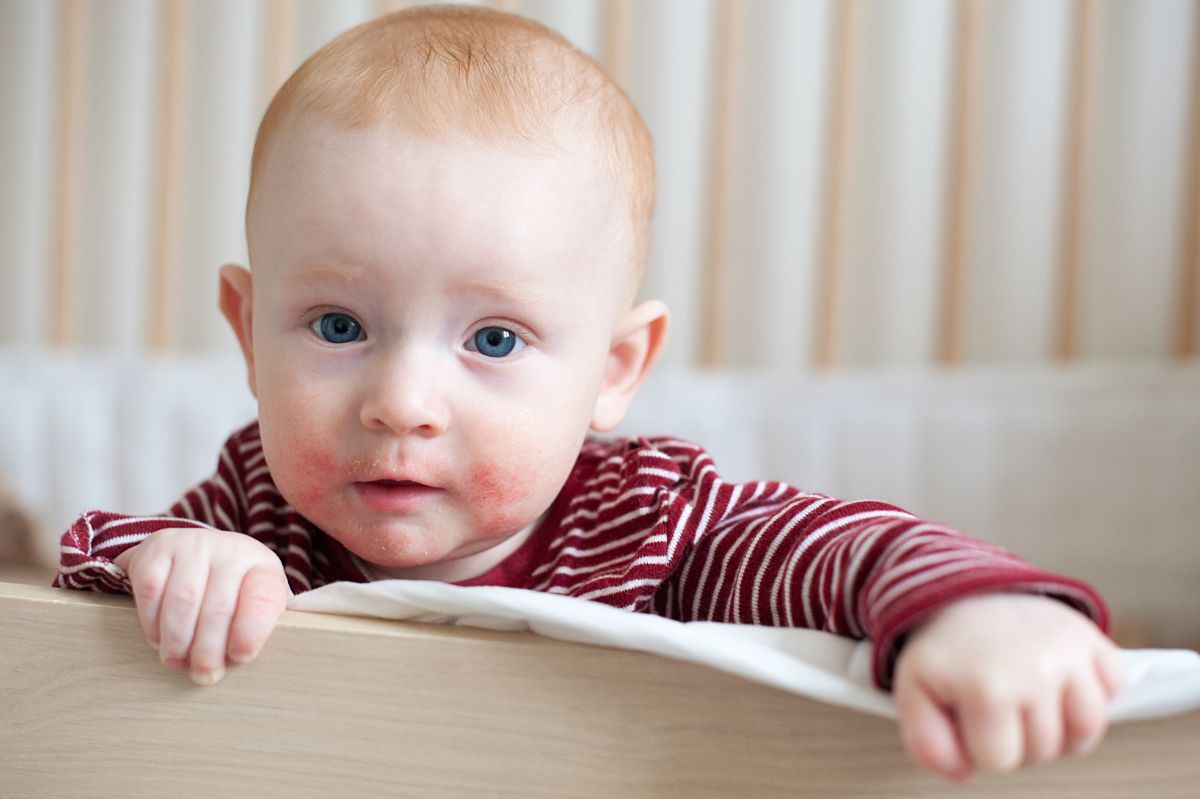Allergic dermatitis frequently affects children: let’s see which areas of the body are most affected by this skin disease and how to treat it.
Atopic dermatitis or allergic dermatitis usually appears around the third month of life with erythema that causes itching and that, over time, will present cracks and crusts.
The areas of the body most affected are the face – in particular, the cheeks -, the neck, the extensor areas of the limbs, and the groin: in children, dermatitis often affects the wrists, elbows, hands, and feet, but also the area of the genitals.
The disease has alternating phases in which there are periods of regression and periods in which the manifestations worsen: generally, the remedies that are adopted only serve to soothe the itching and skin redness since, in 50% of cases, dermatitis spontaneously regresses with the adulthood, without the need for proper treatment.
When the manifestations worsen, it will be necessary to use a mild cleanser and a soothing ointment based on calendula, chamomile, and aloe vera to calm the symptoms and not worsen the situation: it is advisable to avoid scratching and seek medical attention in case of infections that may appear if the skin has lesions.
Dermatitis in children: what are the causes
Dermatitis that occurs in children is an inflammation of the skin called atopic dermatitis or allergic dermatitis.
It is not a manifestation caused by stress but a hypersensitivity of the first type towards various allergens and is one of the most common dermatitides: the onset of atopic dermatitis occurs in early childhood and affects 1-3% of children.
The causes of atopic dermatitis are unclear; there is certainly a genetic predisposition, given that in 60% of cases, there is a familiarity with dermatitis or other allergies; allergic dermatitis generally affects children who have a family history of allergies including hives, asthma, and rhinitis.
The onset can be triggered by several factors, such as the ingestion of certain foods, especially milk and eggs, and treatment for atopic dermatitis in children is often unnecessary, as this disease heals spontaneously in adults.
Also Read : Laughter: The Best Of Drugs

